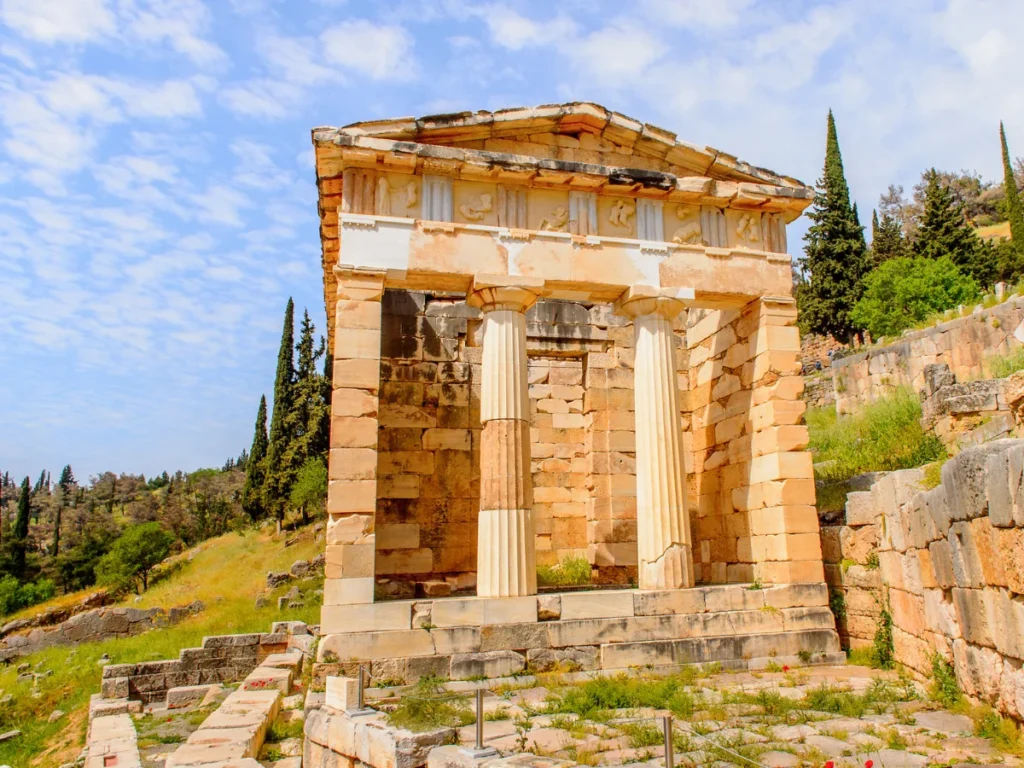Aphrodite was the enchanting Goddess of love and beauty
Aphrodite was the enchanting Goddess of love and beauty in Greek mythology. Emerging from sea foam, she symbolizes nature’s fluidity and eternal connection to love. With powers that inspire desire, her influence weaves emotions that color human experiences. From passion to rivalry, her multifaceted character resonates through art and literature, embodying timeless allure. Aphrodite’s legacy endures as a reminder of the enduring power of love and the profound human longing for connection.

The enchanting Goddess of love and beauty: Aphrodite
The Radiant Goddess of Love and Beauty
Aphrodite, a luminescent figure in Greek mythology, reigns as the embodiment of love and beauty. With her enchanting presence and mesmerizing tales, she has captivated the hearts and minds of generations, leaving an indelible mark on ancient Greek culture and beyond.
The Mythical Birth of Aphrodite
Aphrodite’s origin story is steeped in mystery and fascination. According to legend, she emerged from the sea foam near the shores of Cyprus, a divine being born from the sea’s gentle caress and the primordial energies of the universe. This unique and enchanting birth set the stage for her connection to the sea and its ever-changing, alluring beauty.
Attributes of Allure: Beauty Incarnate
Aphrodite’s physical appearance is the epitome of celestial beauty. Her countenance radiates with an otherworldly charm, her enchanting smile drawing admirers from both the mortal and divine realms. Frequently depicted with a mirror in her hand, she represents self-love and perfection. Her presence is often accompanied by graceful swans and doves, symbolizing her serene aura and the essence of love and peace.
Aphrodite’s Impact on Mortals and Gods
Aphrodite’s influence transcended mortal boundaries, ensnaring the hearts of both humans and deities alike. Her ethereal allure and captivating grace had the power to kindle passion and desire, evoking deep emotions within all who encountered her. Her dual role as the protector of sailors, ensuring their safe voyages, underlines her multifaceted nature as both a deity of love and a guardian of those navigating the unpredictable sea.
Honoring Aphrodite in Greek Culture
In Greek culture, Aphrodite held an esteemed place of reverence. Temples and sanctuaries were erected in her name, the most famous being the Temple of Aphrodite in Corinth. Devotees sought her favor in matters of love, relationships, and fertility, entrusting their hopes and desires to her divine guidance.
Aphrodite’s Enduring Legacy
Aphrodite, the enchanting goddess of love and beauty, remains an enduring figure in Greek mythology. Her enigmatic birth, timeless allure, and profound influence on gods and mortals alike emphasize the eternal significance of love and beauty in the human experience. Through the annals of history, she continues to remind us of the timeless magnetism of love and the eternal appeal of beauty in our lives.
Read more about the different gods and goddesses in Ancient Greece.
Cyprus in Ancient Greece
During ancient times, Cyprus was an essential part of the Greek world. Greek colonists settled on the island early, and it became a part of the Greek cultural sphere. Cyprus developed its own culture and religion, with the goddess Aphrodite being a central figure. The island had a rich history and was often a contested region among various powers, including Persia and Egypt. Cyprus’ connections to the Greek world remained strong in antiquity and have left a lasting impact on the island’s history and culture.
